Context

AI and medical research are closely interrelated. In particular, when it comes to medicine, healthcare and wellbeing.
Health came to the forefront as a crucial field for AI uptake in recent years. The COVID-19 the crisis was one of the factors that boosted the adoption of AI in health and the digital transition of business, research, education and public administration. Furthermore, the unprecedented investments of the Recovery Plan (2020) were set to fuel development in digital technologies and health beyond expectations.
Many important policy developments are shaping future directions, including the European Strategy for Data, setting up a common dataspace for health, and the Artificial Intelligence Act, a risk-based regulatory framework for AI.
There is a need for an effective EU approach to new challenges, leading the advancement of science and technology while protecting society, and paving the way for sustainable progress for future generations.
Approach
AI, by feeding on large amounts of data to extract patterns and insights, can undeniably be a transversal force of change for several sectors.
However, technology adoption does not restrict to the potential held by the technology per se: it rather expands to the context surrounding it. From this more holistic perspective, each sector displays its own set of peculiarities (and challenges) with respect to AI uptake.
In this task, we outline such sectoral specificities in the adoption of AI both quantitatively, by blending different streams of data, and qualitatively, through expert consultations and literature reviews.
Publications
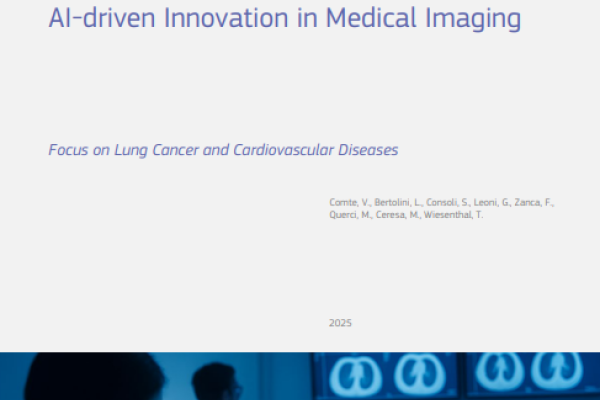
Artificial Intelligence and Deep Learning are increasingly being used to support the prevention, diagnosis, and follow-up of non-communicable diseases, helping to ease the burden on under-resourced healthcare systems.
This paper presents the results of a large-scale survey (n = 1092) that explored the attitudes and opinions of European Citizens regarding the adoption of socially assistive robots (SARs) for healthcare in the EU.
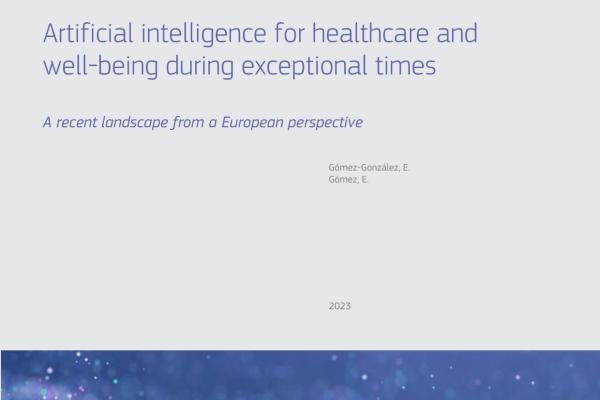
This report provides a state of the art of the current and near-future applications of Artificial Intelligence (AI) in medicine, healthcare and well-being building on previous analyses, and framed in recent historical circumstances.
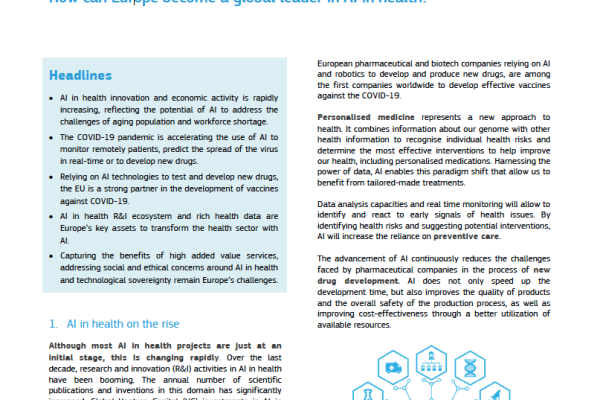
This policy brief addresses the question of what it takes for Europe to become a global leader in AI in health.
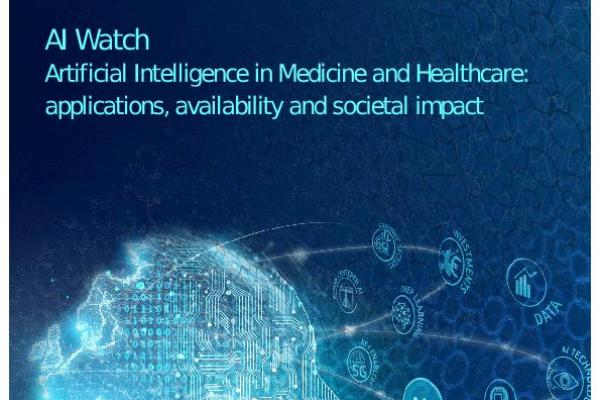
This report reviews and classifies the current and near-future applications of Artificial Intelligence (AI) in Medicine and Healthcare according to their ethical and societal impact and the availability level of the various technological implementations.
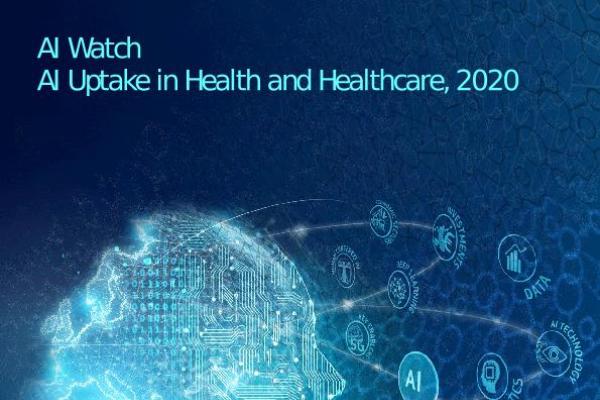
This report presents the results of a sectoral analysis of AI in health and health care.
